Introduction
Here we have the first American carrier based jet fighter. Powered by a derivative of the Halford H-1 turbojet (built on licence by Pratt and Whitney from the Halford / Dehavilland designs) it was an advent of a new age in aviation.
The engine was underpowered for the role it was used in but still had vast improvements over piston powered aircraft of the same era.
Grumman utilised the general fuselage design of the Bearcat with large alterations to allow for then intake, engine, exhaust etc. and a twin boom layout which was similar to the Dehavilland Vampire. THis layout allowed for easier access to the engine while still being a lot more slippery through the air than a piston aircraft. The inclusion of the engine within the fuselage helped to protect it from accidental damage (hanger rash) as well.
Controls
Flight controls as per usual
AG1 for flaps (up or down selection for simplicity)
AG2 for folding wing tips (handy on a carrier)
AG3 for drop tank
AG4 for arrestor hook
TRIM for trim...
Pictures




Notes
So for all that it is a carrier based fighter, the early jet engines where slow to power up and low on power, this means takeoff from a carrier is an "interesting" experience, full power from the Beast spawn point and aim for the longest bit of deck, it sinks on leaving the deck but then gains speed and altitude nicely. It has a max speed of just under 300knts at sealevel which is impressive for this era of aircraft. It is stable and steady but as per most aircraft use of trim is a necessity depending on speed, altitude etc.
Specifications
General Characteristics
- Predecessor WWII Jets Challenge! (CLOSED)
- Created On Windows
- Wingspan 31.4ft (9.6m)
- Length 29.9ft (9.1m)
- Height 10.3ft (3.1m)
- Empty Weight 2,812lbs (1,275kg)
- Loaded Weight 7,746lbs (3,513kg)
Performance
- Power/Weight Ratio 0.435
- Wing Loading 17.1lbs/ft2 (83.4kg/m2)
- Wing Area 453.5ft2 (42.1m2)
- Drag Points 953
Parts
- Number of Parts 783
- Control Surfaces 0
- Performance Cost 2,407

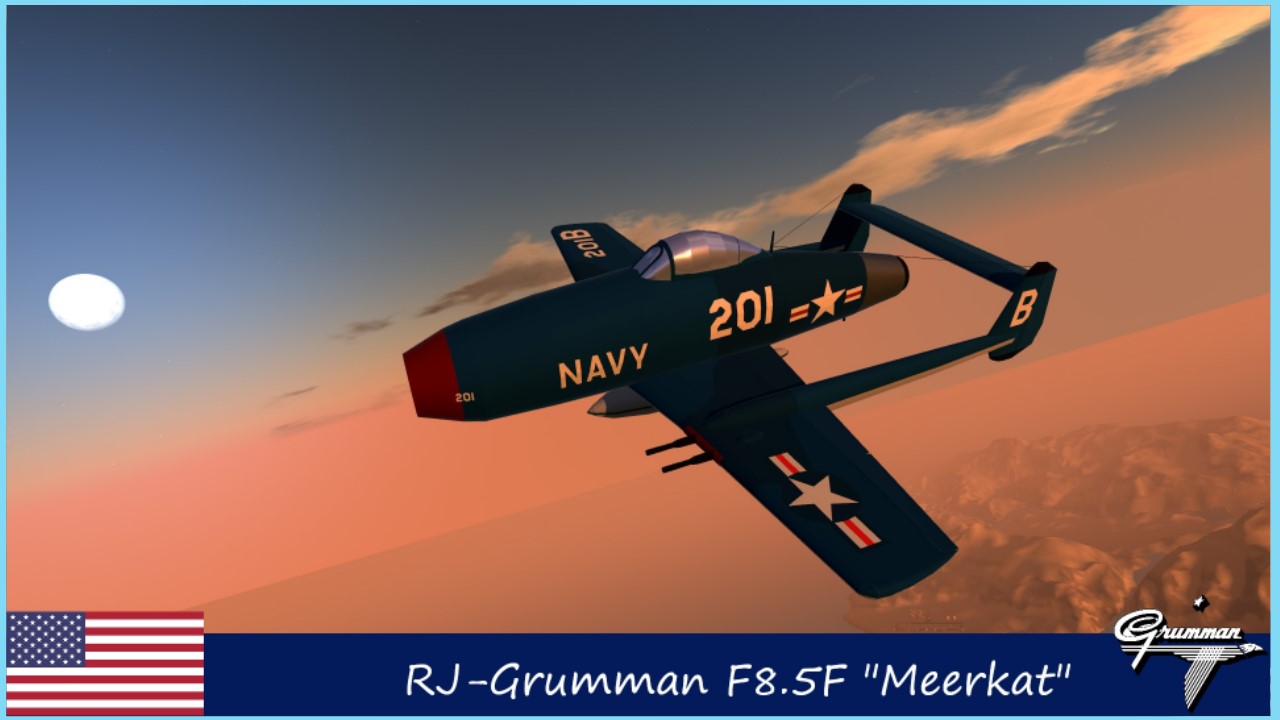
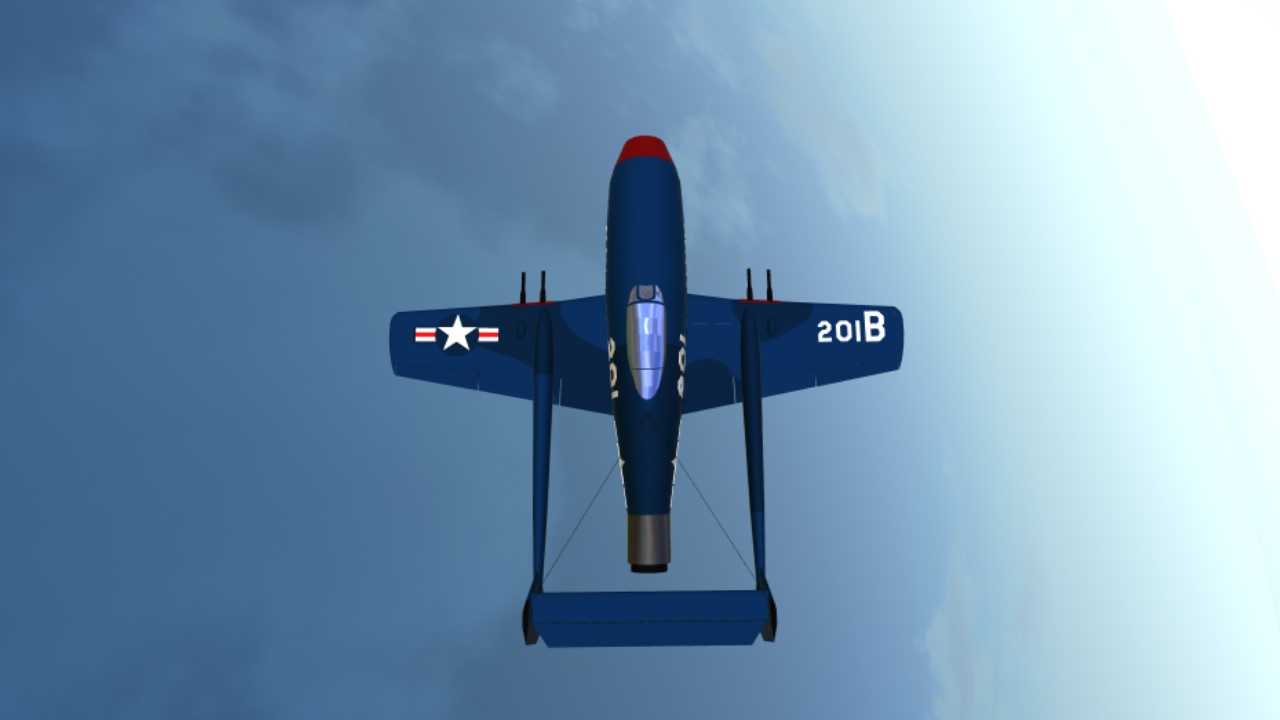
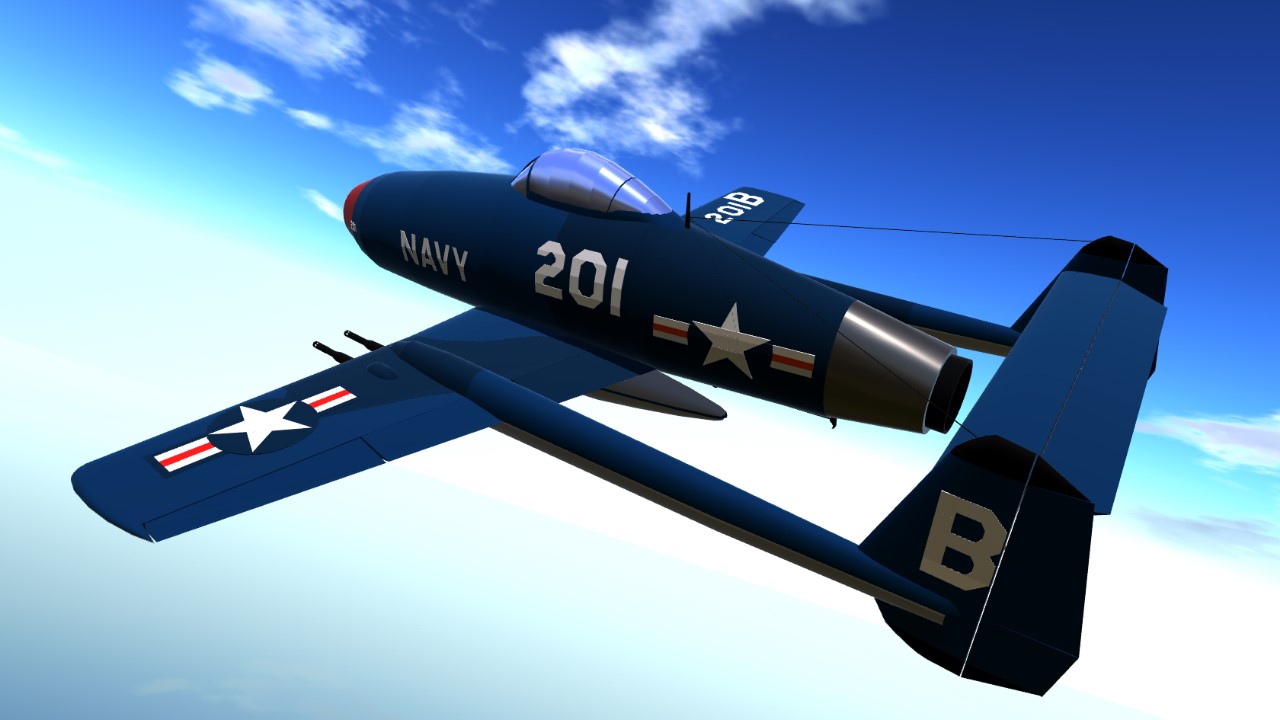
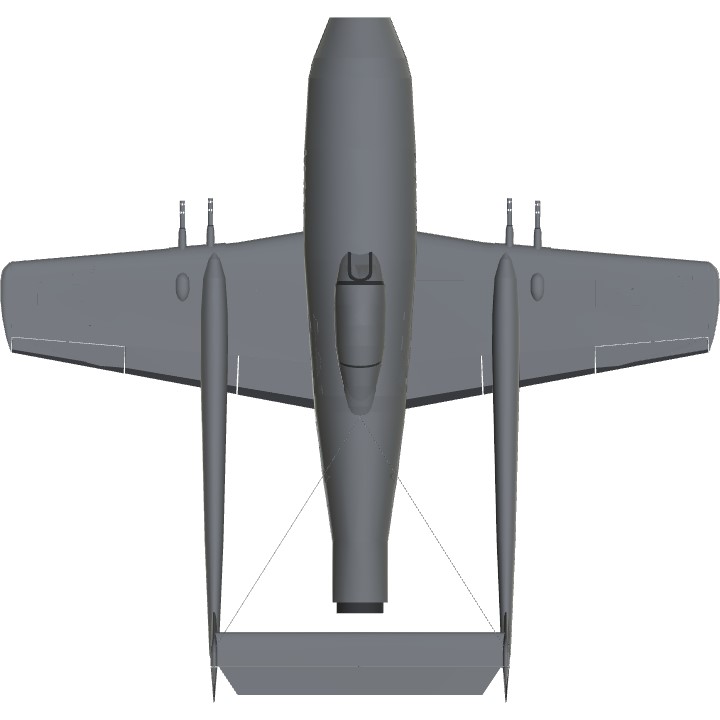
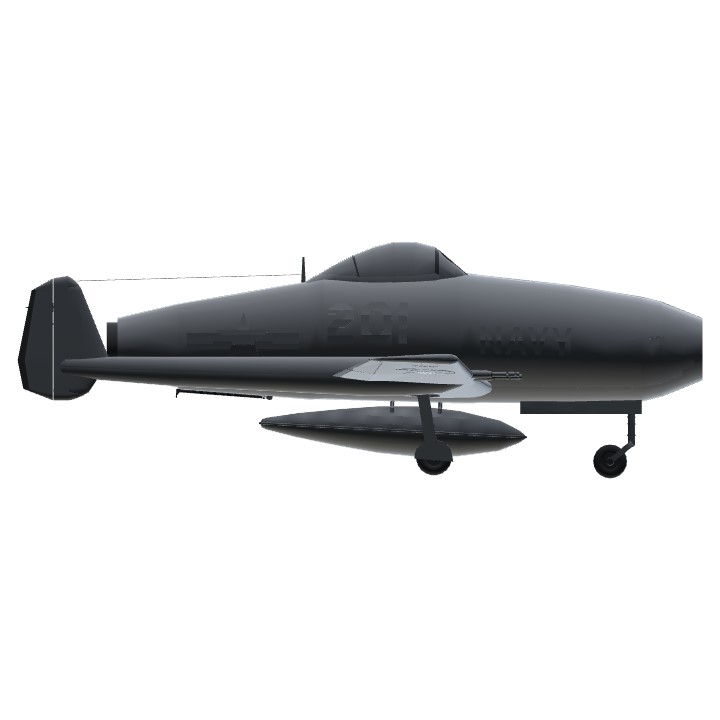
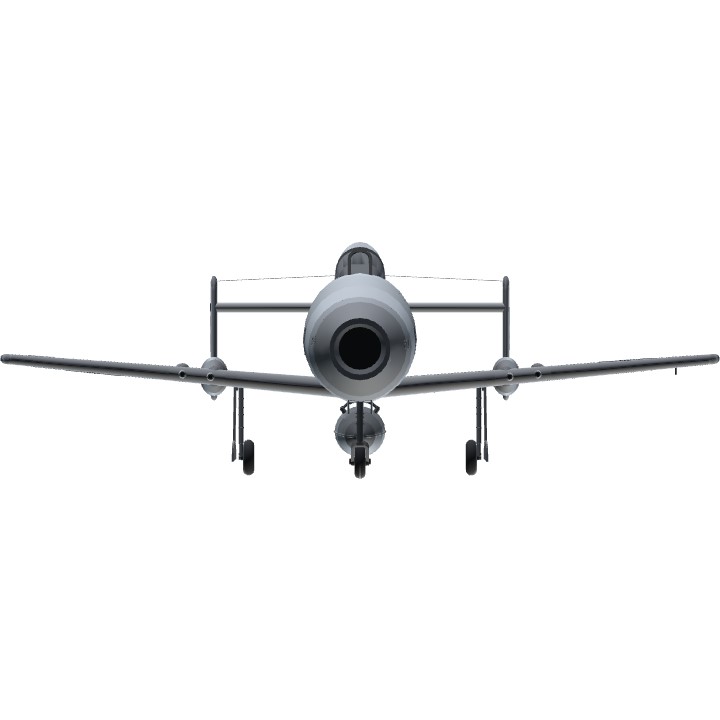
RATING
Looks : 8.75/10 pts.
Performance : 9.35/10 pts.
Details : 9.15/10 pts.
Weaponry : 9.25/10 pts.
Functionality : 9/10 pts.
Bonus : 9/10 (Landing Gears)
OVERALL RATING : 9.1/10
Thanks @RamboJutter
@MufazzalPasha The easiest thing to do is to download it and then take the wing to bits, you can see the parts i have used and how it works. Hope this helps.
I have a Question, How do you made a wing from fuselage part???
@RamboJutter owh noice thanks
@BLOODIUS i use discord instead of imgur though
@Diloph ty
Soo, if you want, get a picture from google, go to imgur, click new post on imgur, then click add photo, go to camera roll, pick a photo, when the photo comes up on the next page, hold the pic and click copy, hen go to any desc, on your build and put excactly these  at the end, but when the link copies, it will say https://, delete the s in https to make http, then it should work, I said it was complex @BLOODIUS
@Diloph tell me
Aight@RamboJutter
@Diloph the landing gear was based loosely from a few ww2 fighters, to be fair I actually shrunk it and the wing to get a better overall relationship with the fus. There are arguments both ways, t38/f5 wheels are small like the hawk as well. In relation to the suspension etc I just kept it simple :)
It’s complicated @BLOODIUS
Also, why not make trailing link LG? If it’s carrier jet? No need to, there’s non trailing link LG planes out there but I think it would suit it more?@RamboJutter
I kinda see what you are saying, but to me airliners have quite huge wheels, and I know the impact is mostly suspension and trailing link, but I thought the wheel would also need to be big enough? Like the FA-18 has decent big wheels, but I’ll look at that plane you’re talkin bout@RamboJutter
@RamboJutter nah I'm still making my plane lol
@rexzion did you download it then?
how to put a picture on the description?
@asteroidbook345 Im sure you wil rise to the challenge =)
@Diloph yes and no, my understanding is that large wheels are needed where the ground is uneven to stop the aircraft from tripping up on undulations etc. when you are landing on a smooth even surface that isnt an issue so then you need to consider impact stress from the landing but most of that is taken up by the suspension rather than the wheel itself. Have a look at something like a Hawk (or Goshawk if you want the naval version) the wheels are smaller than you would think. Most airliners have small wheels as well for similar reasons i would suspect. Dont forget the larger the wheels the larger the bays needed and thus more space needed.
nice job
Very cool! I don't know what it is about these F8F themed planes, but I love them!
Ok cool! Also if you do carrier landings. Doesn’t that need bigger wheels for the worse impact?@RamboJutter
@RamboJutter What you just said sounds like an ad. hmmmmmm
@rexzion you may still, i dont win many competitions, i just build for fun, Mahadi just keeps me building different fresh things with these contests =)
@Diloph Thanks =) Yeah I know what you mean about the wheels, it all depends what im building though, if its a ww2 aircraft designed for grass fields i will make them bigger but if its for tarmac / carriers the wheels do tend to be smaller (im not arguing, i agree with your sentiments). I will consider this more closely in future.